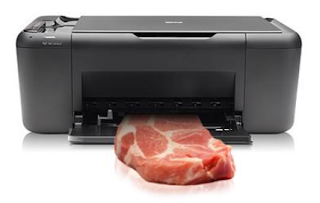The Good Food Institute (GFI) reported that
Soglowek, Israeli-based food company, has announced it is launching a new range of vegan meats. According to GFI, the plant-based line, Zoglo’s, will donate 20 percent of its profit to
SuperMeat, an Israeli "clean meat" start-up.
Soglowek is as well-known for its salami and sausage as it is for its kosher and vegetarian products. However, Eli Soglowek, the CEO of Soglowek, has now expressed interest in investing time and money "to do to the meat industry what Elon Musk is doing to the automobile industry."
"I was born to a family of butchers, spending time in slaughterhouses since the age of 5. Despite that, I love dogs, horses and also cows very much and would like to transition to eating cultured meat that is produced by machines using stem cells taken from real animals without causing harm to the animals and without polluting the planet," he said.
Currently, Zoglo’s offer a line of plant-based meats that include nuggets, chicken and beef-style patties, and crispy cutlets. However, much of line contains animal products, such as egg. Reportedly, the new range by Zoglo’s will be vegan-friendly.
Increasingly, consumer habits around the globe are shifting away from animal products and toward plant-based food options. A
recent article by Forbes revealed: "A full 70% of the world population reportedly is either reducing meat consumption or leaving meat off the table altogether."
Pioneering this movement is the rise of "clean meat" and vegan meat products, which have become so popular they are now considered mainstream. These cruelty-free meats allow the most carnivorous consumer to indulge in the foods they love while avoiding the ethical and environmental concerns that are increasingly troubling the modern consumer.
Soglowek’s decision to donate 20 percent of its profits to
SuperMeat, a clean meat company, is of notable importance. This is yet another exciting example of the traditional meat industry supporting the efforts of bringing clean meat to life.
Tyson Foods, an American multinational corporation that is the world's second largest processor and marketer of meat, invested in clean meat brands with intentions to "disrupt the meat industry."
Tyson Ventures, the venture capital arm of Tyson Foods, is co-leading a $2.2 million seed investment in
Future Meat Technologies. Based in Jerusalem, Future Meat Technologies is a biotechnology company advancing a distributive manufacturing platform for the cost-efficient, non-GMO production of meat directly from animal cells, without the need to raise or harvest animals.
Tyson Ventures is being joined in the seed investment by several groups, including:
Neto Group, one of the largest food conglomerates in Israel;
S2G Ventures, a Chicago-based venture capital fund;
BitsXBites, China’s first food technology venture capital fund;
Agrinnovation, an Israeli investment fund founded by
Yissum, the Technology Transfer Company of The Hebrew University; and New York-based HB Ventures.
It is hard to imagine cultured meat becoming a reality with a current production price of about $10,000 per kg. Future Meat Technologies redesigned the manufacturing process to bring it down to $800 per kg currently and established a clear roadmap to $5 to $10 per kg by 2020.
One of the challenges of "clean meat" technology is reproducing animal fat that is responsible for the unique aroma and flavor of meat. Today, Future Meat Technologies is the only company that can produce this fat, without harvesting animals and without any genetic modification.
Future Meat Technologies said it plans to use the funds from the seed investment to establish its engineering activities and increase its biological research. The company is currently recruiting engineers, chefs and scientists.
The vice president of international campaigns for PETA Asia, Jason Baker, said about Israel: "The country is a leader in the switch to vegan eating: plant-based restaurants are thriving and easily accessible to the one million Israelis – out of a population of eight million – who don’t eat meat."
Source:
LIVEKINDLY and
Food Business News












